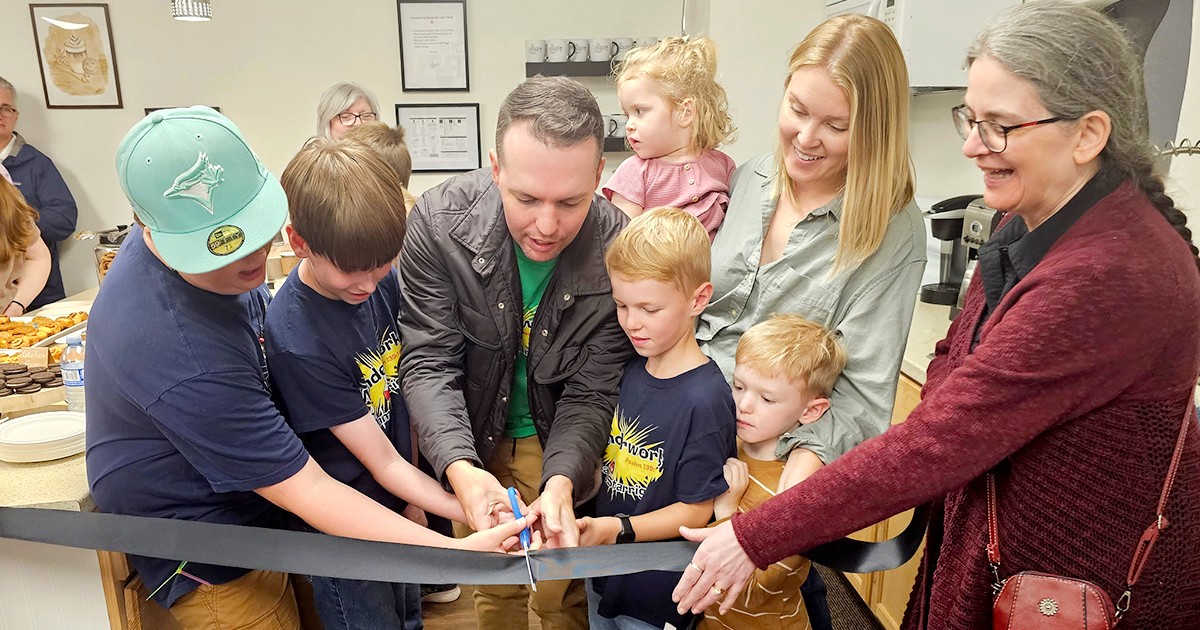Wow! Right there in bold print, in just one short sentence, lies the answer to tons of questions we might have as we survey the grandeur of our global home. Our omnipotent, omniscient God designed and created it all.
If you think about it, there is no statement more appropriate to begin the sacred text. If God did not create, he does not own. Unless he did a hostile takeover.
If God does not own, he is not the preserver and governor of all things and of all people. If God does not govern, he has no right to set a righteous and moral standard for humanity and certainly no right to define or punish sin. In addition to all of this, every book of the Bible is predicated on the fact that God created the heavens and the earth and set in place what we call nature.
If the devil was ever going to debunk the Bible and dethrone its God, there is no better place to start than at the beginning. It is absolutely vital to stop genuine seekers right at the front door of Scripture. So, bent on believing that our existence and our world must have a more natural genesis than the lofty concept of a single Creator, an intense search was undertaken. No stone was left unturned, no monkey was left un-probed, until the scientific community breathed a sigh of relief. Charles Robert Darwin had the answer which he boldy proclaimed 150 years ago in his The Origin of the Species. Darwin convinced millions of people that our existence had more to do with Mother Nature than Father God.
It shook the world and has taken its toll upon and within the Church. Since that time, the theory of evolution has been the topic of debate that has eaten up billions of dollars of research and has chipped away at the Judeo-Christian confidence in the biblical Creator God.
Well, against that backdrop, I want to pose two questions that will take your faith out for a test run. These two questions are designed to test your notion of God that you subscribe to. The first question is easy.
1. Do you believe God created the earth in six literal consecutive days? Admittedly there is some wiggle room here. One could ask how long was a day? Could it have been a 1000 or a million years, etc? In educational settings, according to my admittedly limited and unprofessional survey of contemporary students and teachers, it seems as though there is a fair bit of pressure to believe in the strict evolutionary process. You could be in for quite a bit of ridicule if you believe in a creator God. The attitude is well summed up by first-century Arab philosopher Abū al-'Ala al-Ma'arrī who stated: “There are two classes of men: intelligent men without religion, and religious men without intelligence.”
Well, let's leave that question and move to a more probing one. This question leaves no room for us to sit on the fence.
2. Do you believe that God could have created the heavens and the earth in six literal and consecutive days? If your answer to the first question was no, then is it that God did not or could not? If he could not, then what is the purpose of submitting to him whatsoever? Is there any benefit in a God who could not form this tiny speck in the vast universe in six days? Quite frankly, I can entertain either explanation: a day as a longer period of time or six literal days in which God created a mature earth. But I cannot believe in or worship with confidence a God who could not do whatever his divine will decreed necessary to accomplish his divine purpose.
A God who could not create is useless us. We are going to need him to reverse death, build us a heaven, defeat evil and sustain us eternally. He set the price of our sins as his blessed Son on the cross. I need him to have the authority to do that without having to be muscled to the ground by the loyal opposition.
Although I do not fully understand God or all of his ways, and because I see through a glass darkly and am often confused by his responses, there is a perpetual worship going on in my heart for our God. With the Apostle Paul I say with confidence:
“Now to him who is able to do immeasurably more than all we ask or imagine, according to his power that is at work within us, to him be glory in the Church and in Christ Jesus throughout all generations, for ever and ever! Amen” (Ephesians 3:20-21).
 Major Lorne Pritchett is the District Director for the Canadian Bible Society in Newfoundland and Labrador. Married to Barbara, they have two children: Elizabeth (Christan Murphy) who is a high school teacher in Mt. Pearl, NL, and John (Michelle Burditt) who is the district manager for Zellers in the greater Vancouver area.
Major Lorne Pritchett is the District Director for the Canadian Bible Society in Newfoundland and Labrador. Married to Barbara, they have two children: Elizabeth (Christan Murphy) who is a high school teacher in Mt. Pearl, NL, and John (Michelle Burditt) who is the district manager for Zellers in the greater Vancouver area.









I do think it possible that the earth was not created in six literal days. But it is entirely possible that it was. I just don't think Christians can use science very effectively to somehow prove whether the accounts in Scripture are true, or not true. The Scriptures were not written with the aims of science in mind. Science, as we know, is really a product of the western enlightenment. It is impossible that the ancients would have written according to this sort framework. And yet the Scriptures are true because God is true. Paul tells us in Romans 1 that man knows God exists because of the created order. But due to the problem of sin, man started worshipping the created order instead of God. The apparent "worshipping" of science that we see today is an example of this.
I am willing to believe that the Genesis account (chs 1-11) may not need to be understood as the literal way that God created the earth, yet it still reflects the truth. God created the universe and everything in it. So while I do believe that the earth is older than 6000 years, I do not believe in human evolution. I think this is one of the great mistruths of our age, and negates the importance of the incarnation.